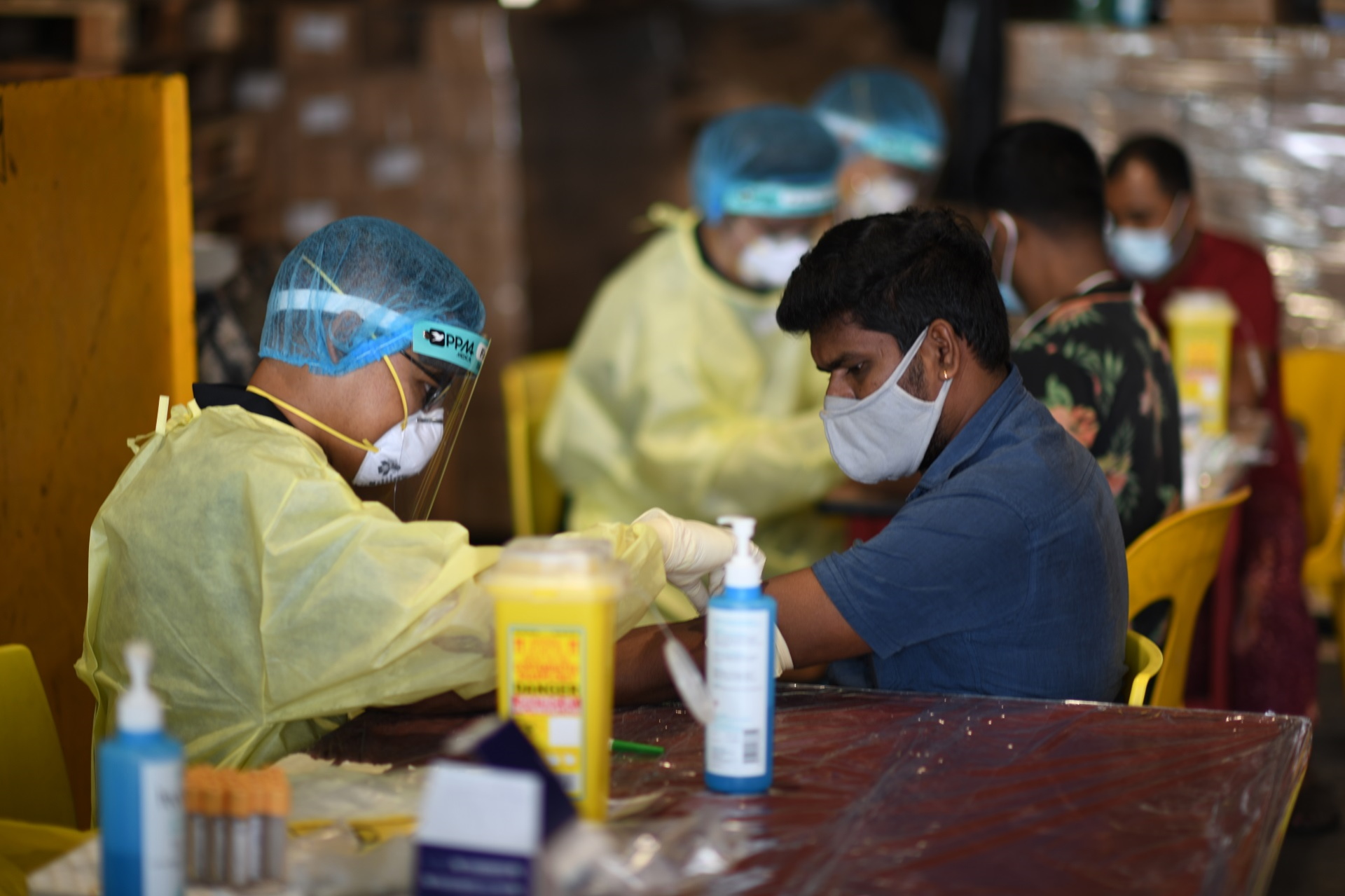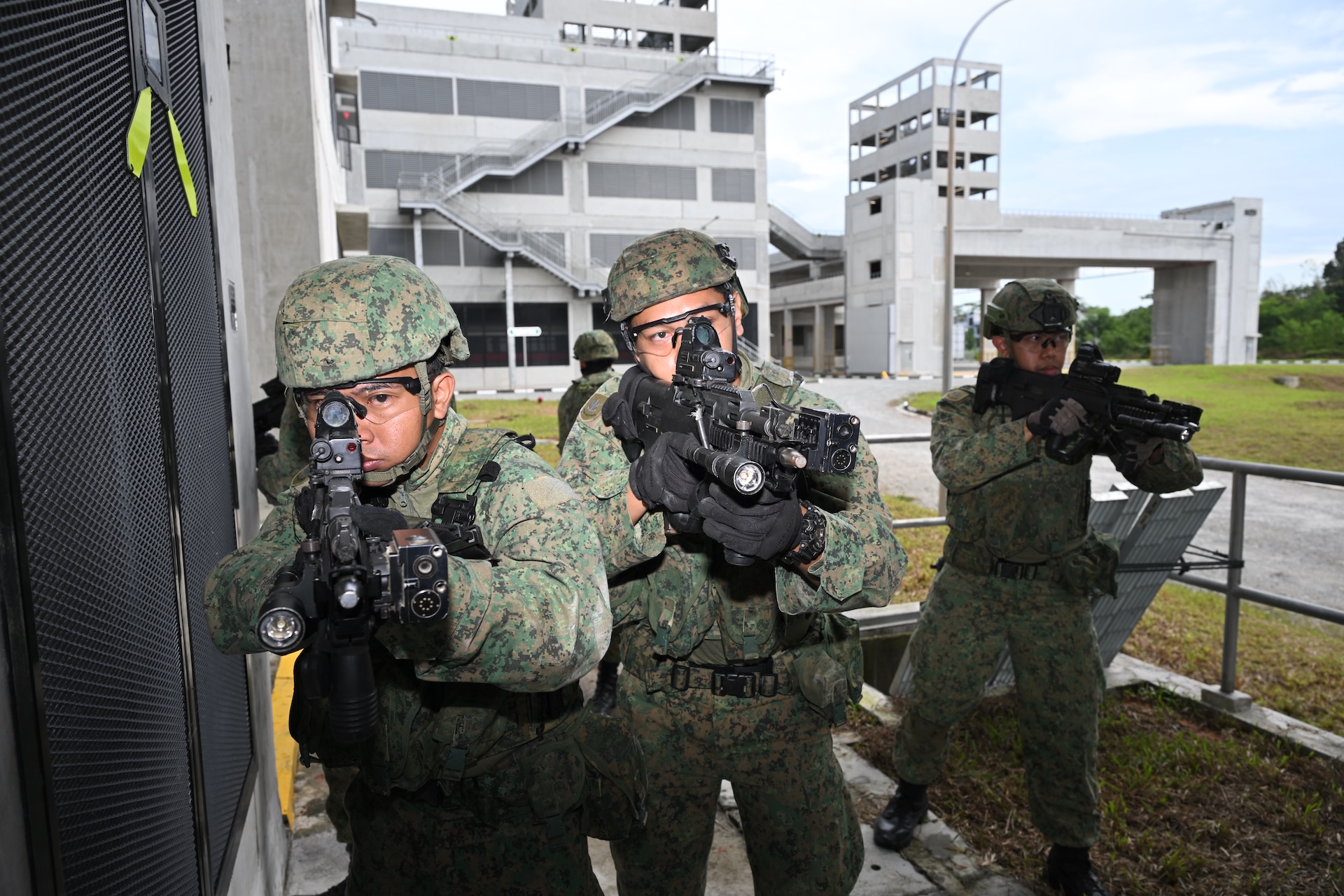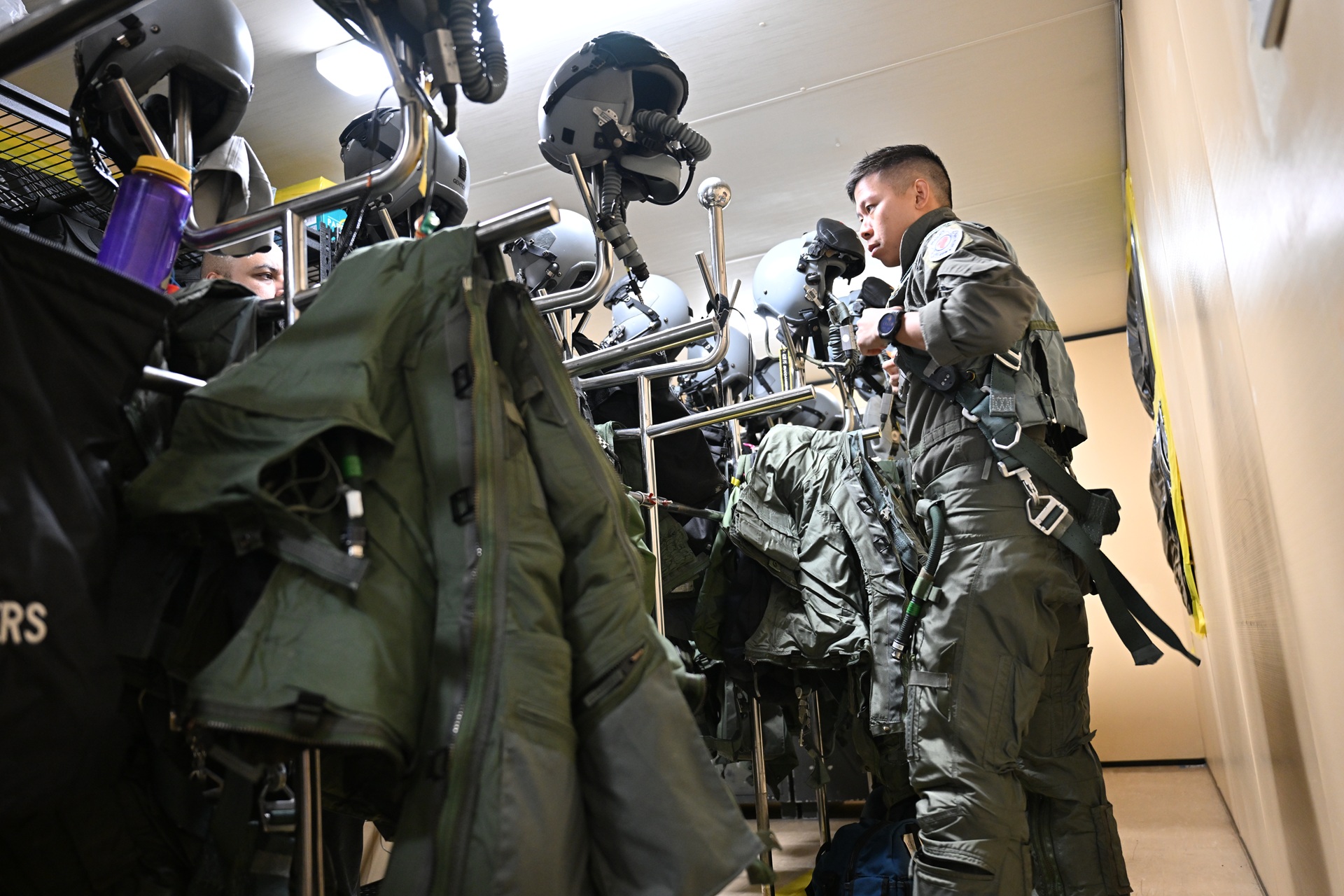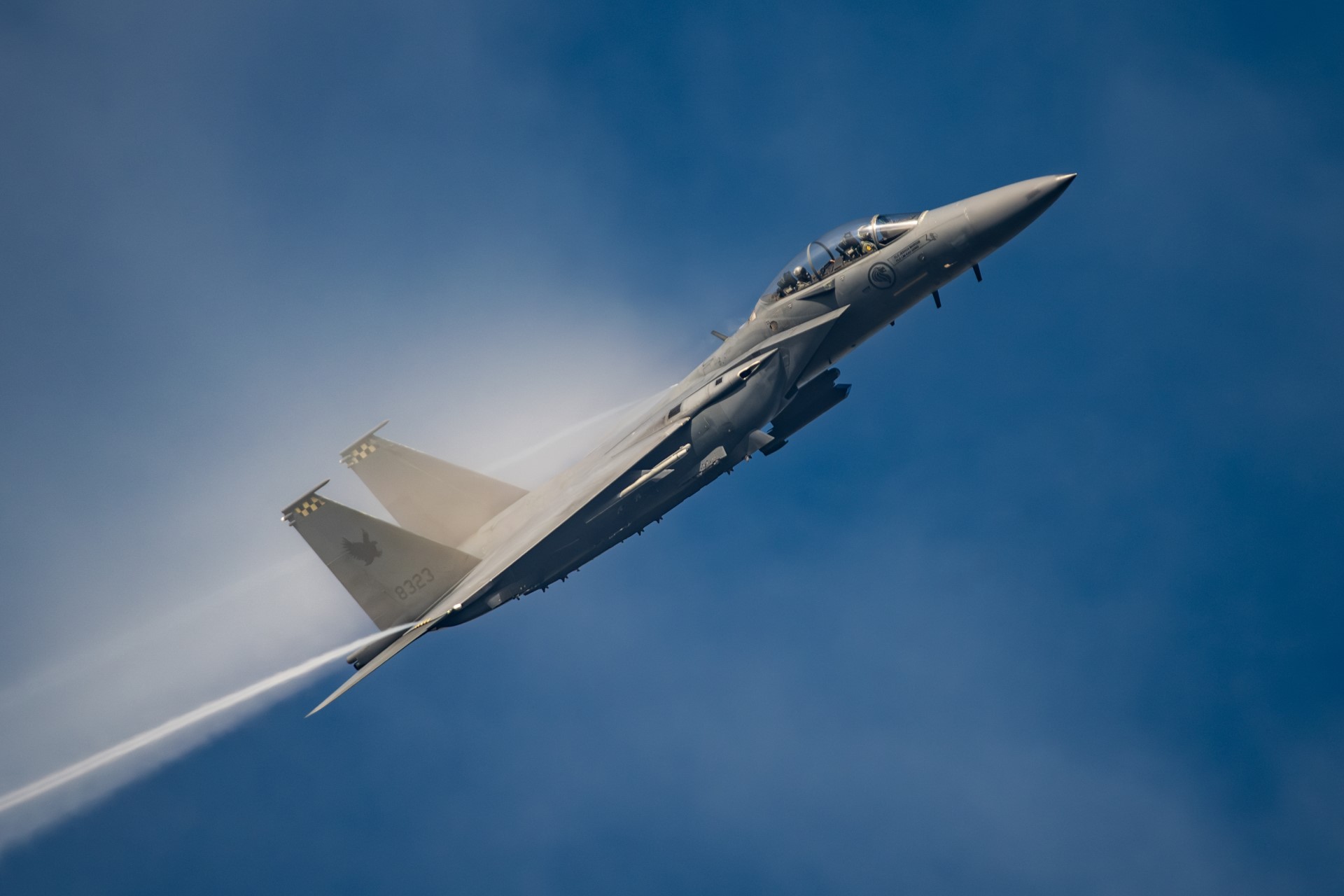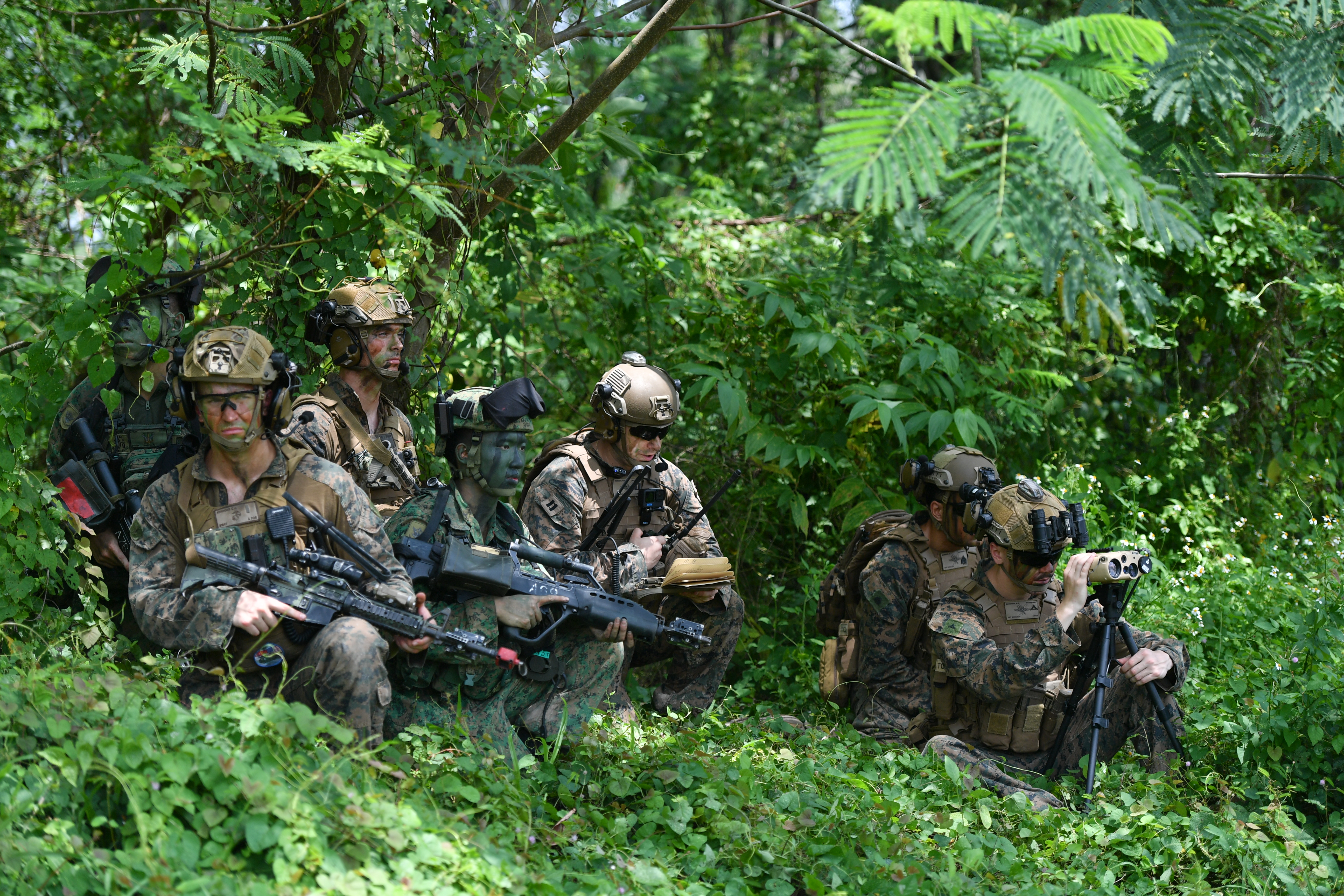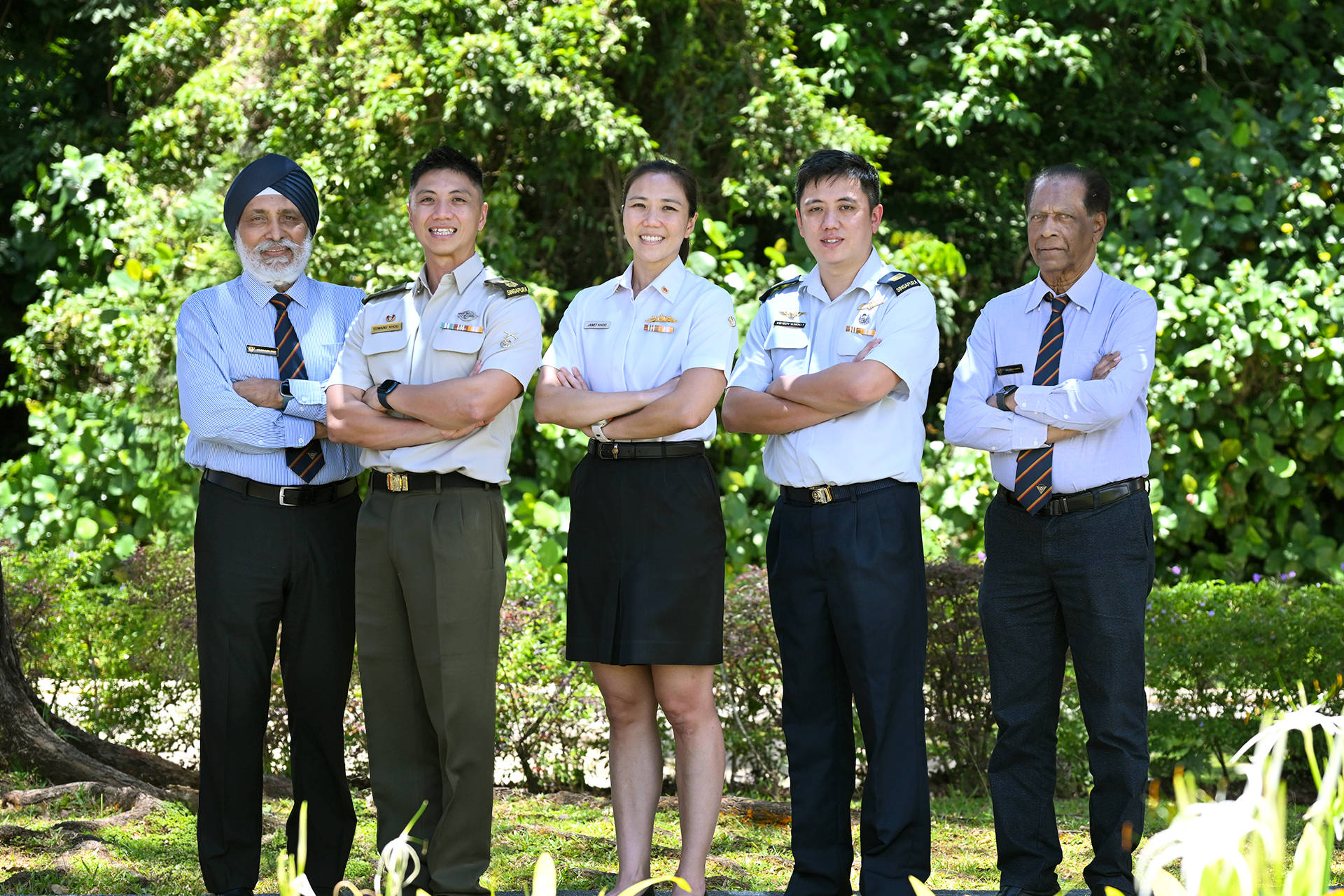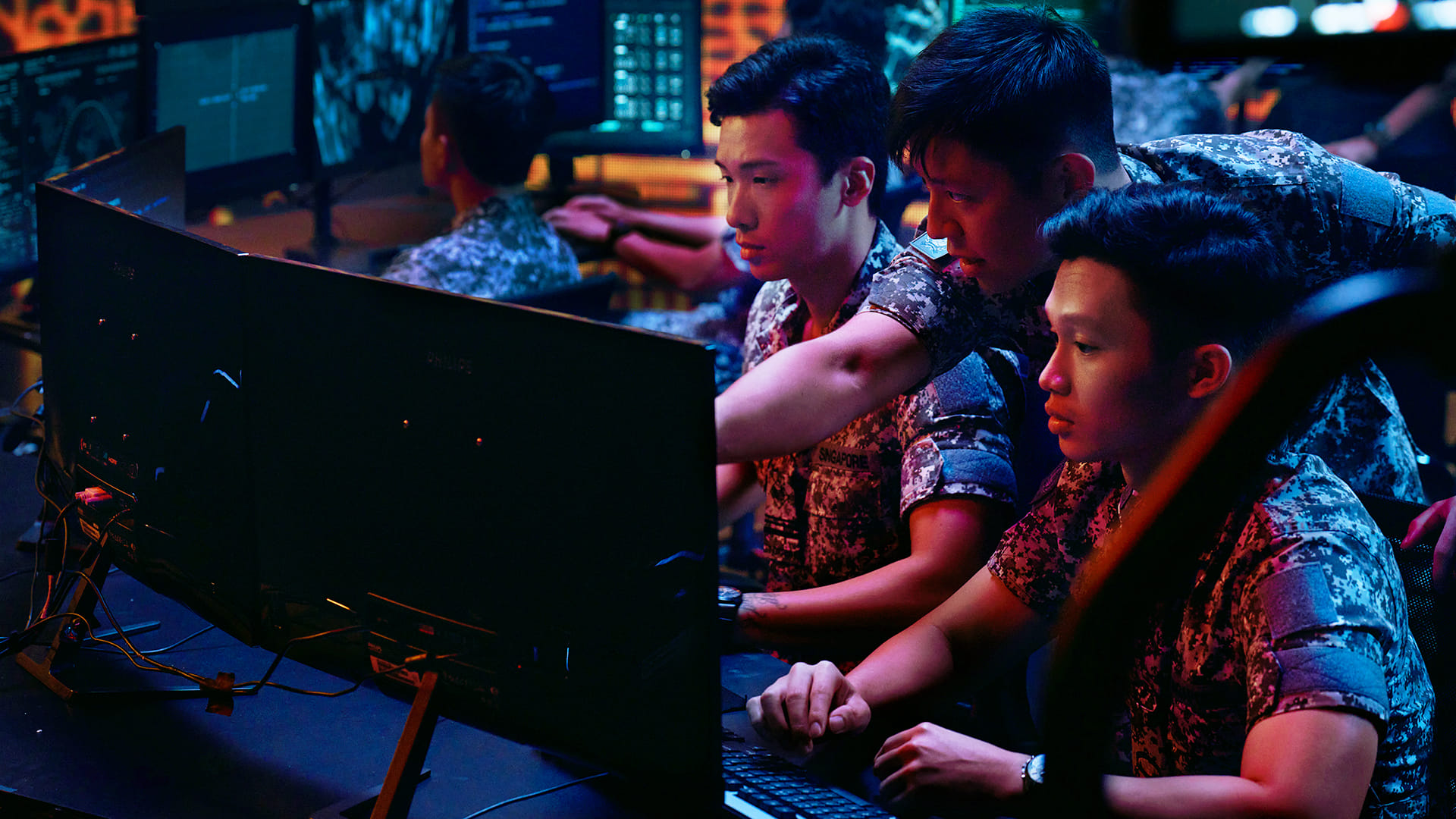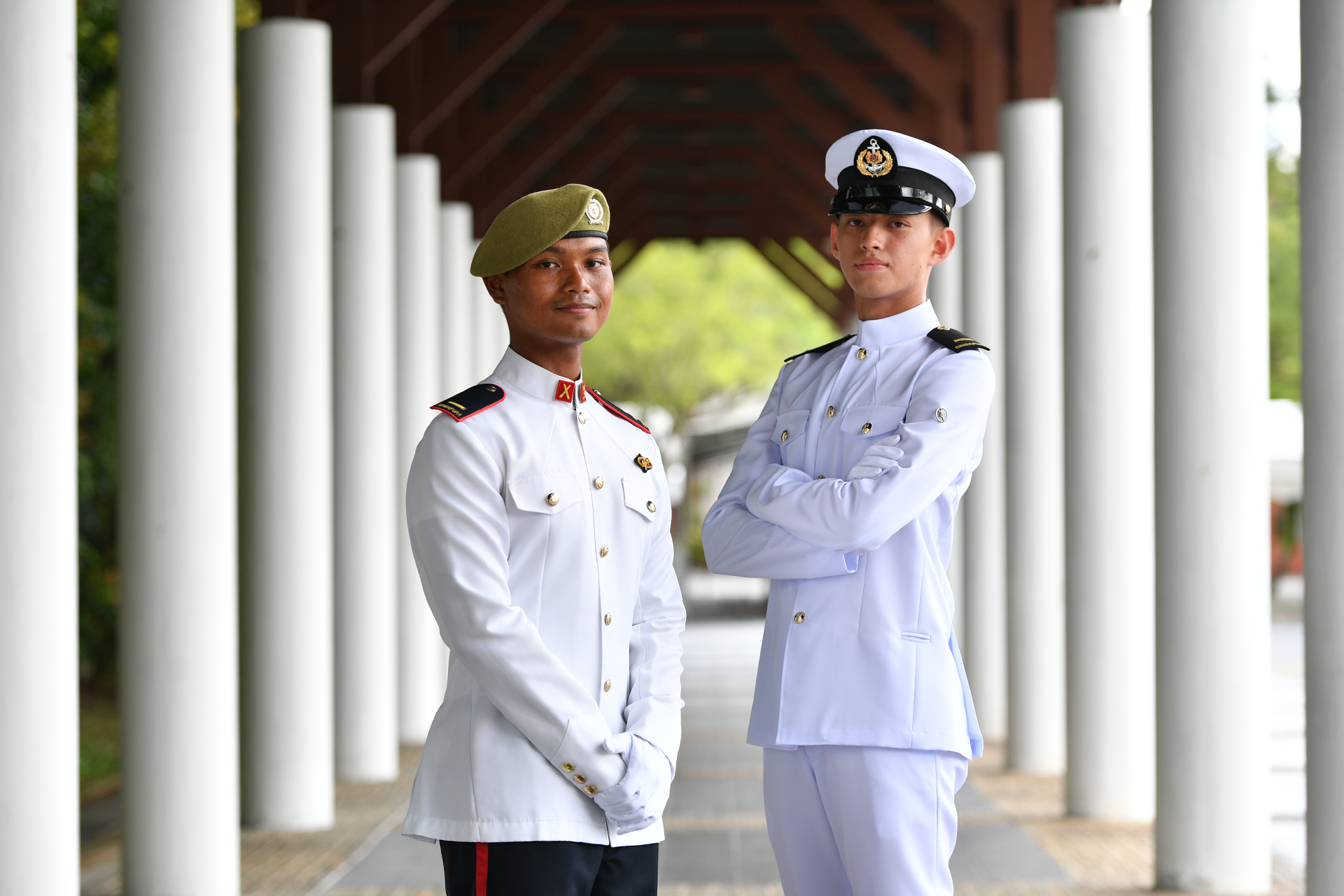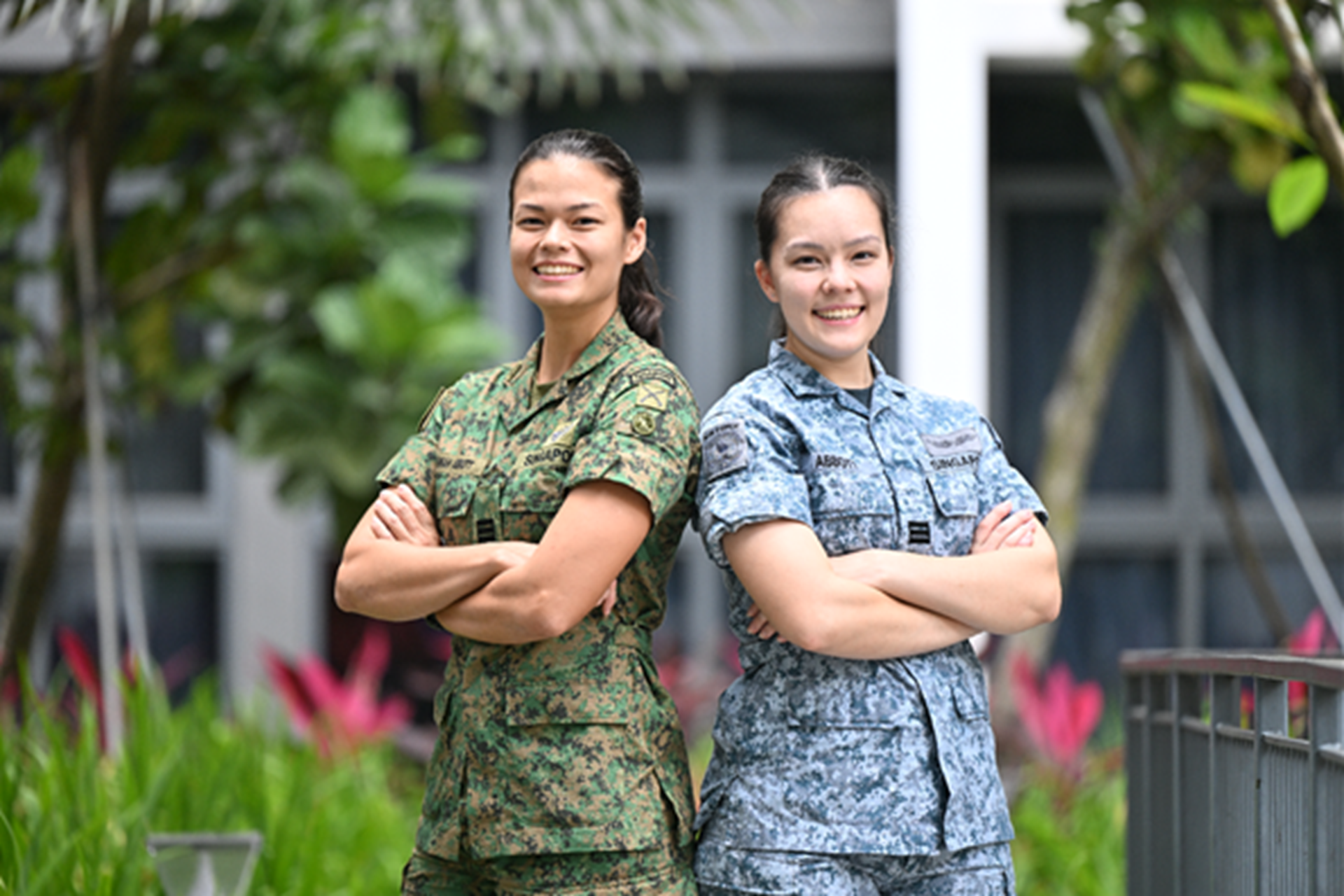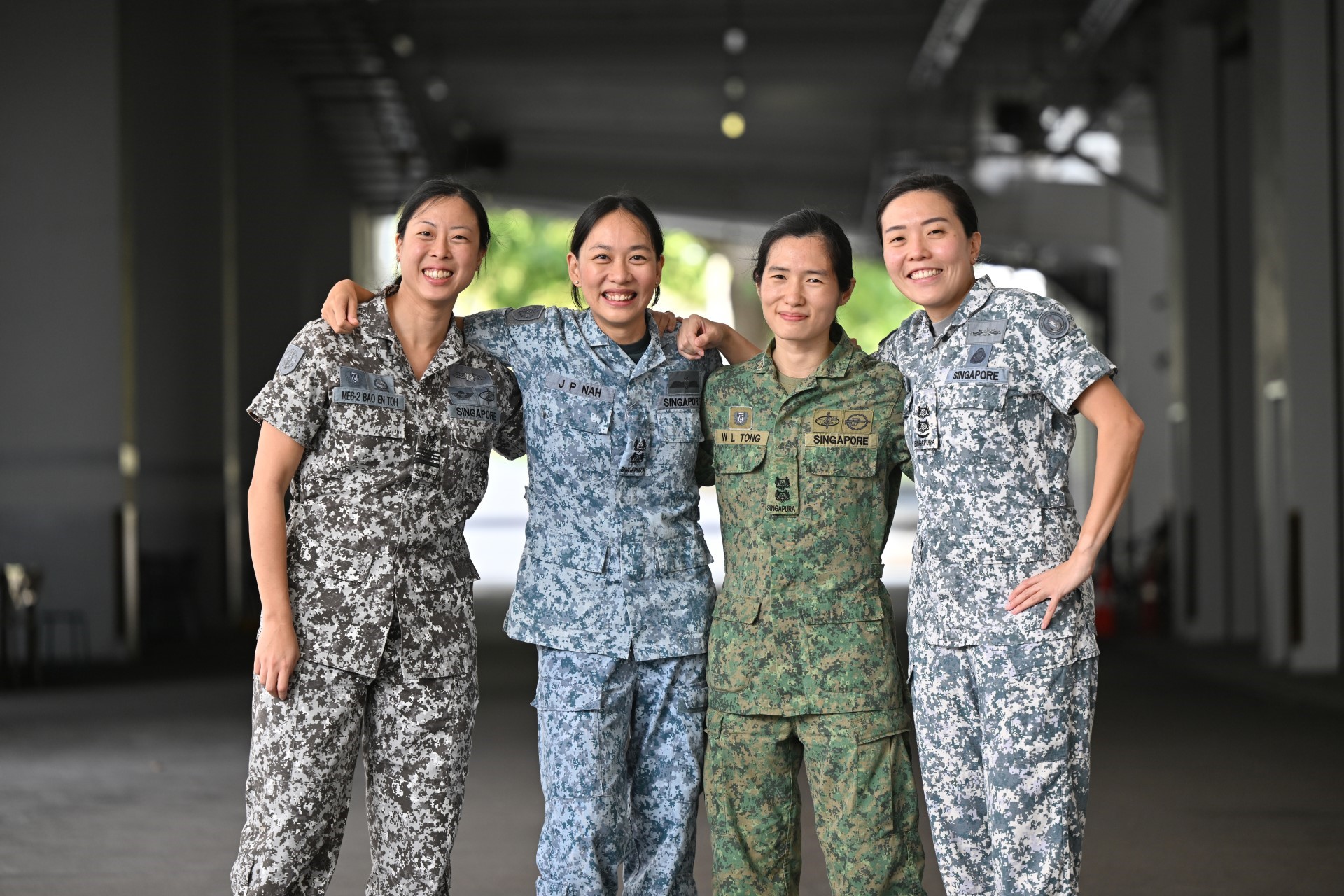SAF MEDICAL PERSONNEL CARRY OUT SEROLOGY TESTING
Air Force Medical Services (AFMS) Medical Officer Lieutenant (LTA) (Dr) Kalaiselvan Karthigaiyan was working at the Aeromedical Centre when the COVID-19 pandemic struck. Because of his operational duties there, he could only look on as his fellow doctors were deployed to the front line.// Story by Benita Teo
// Photos Courtesy of LTC Alex Chua
Air Force Medical Services (AFMS) Medical Officer Lieutenant (LTA) (Dr) Kalaiselvan Karthigaiyan was working at the Aeromedical Centre when the COVID-19 pandemic struck. Because of his operational duties there, he could only look on as his fellow doctors were deployed to the front line.
"When I saw my counterparts in the hospitals being activated for ICU (Intensive Care Unit) duty or my friends from the SAF (Singapore Armed Forces) getting involved in COVID-related ops, I felt that I could contribute as well," said the Full-time National Serviceman (NSF). Having worked with patients with infectious diseases during his training to become a doctor, he yearned to join the fight against COVID-19 on the ground.
When the opportunity finally came, he was activated to join the Inter-agency Task Force (ITF) in early May to help with carrying out serology testing on migrant workers living in dormitories.
Serology tests detect antibodies to COVID-19 from blood samples. Positive tests indicate past, as opposed to current, infections and can be useful in establishing links in contact tracing.
Unlike swab tests, which just indicate if a patient has COVID-19 or not, serology testing also shows whether patients are still infectious, to determine if they are safe to leave isolation and return to the community.
Fifteen SAF personnel from Military Medicine Institute (MMI), Navy Medical Services and AFMS have been deployed to carry out serology testing for migrant workers. It entails collecting a blood sample, which is then sent to the Singapore General Hospital for testing. Results take one to two days.
Coming together to fight COVID-19
Setting up the testing station was not without challenges, LTA (Dr) Karthigaiyan, 26, noted. The set-up was new, and the team was initially not unfamiliar with the layout of the dorms. Fortunately, they had help from other teams such as the SAF's Forward Assurance Support Team (FAST) and the dorm managers.
"The FAST and dorm managers had been attached to the dorms from the start and knew the community better. They advised us on how we could tailor our ops to make it smoother. For example, at one of the dorms, the FAST guided us on how to engage the migrant workers so that the registration process and filling up of the questionnaires were smooth."
LTA (Dr) Karthigaiyan has conducted about 10 test sessions so far. He explained that his family was not worried about him, given his background as a doctor. Nonetheless, he takes extra precautions to keep his loved ones safe: "My family is used to me being in these medical situations, and they know that I am careful. But I also avoid gatherings, and practise safe distancing from them, even at home."
At work, he keeps a close eye on the safety and standards of his team: "I have to take care of the morale of my medics. I place emphasis on things like the importance of donning PPE (Personal Protective Equipment) properly and ensuring good hand hygiene."
"For those of us serving NS right now, this is an unprecedented period when the country needs help and is pulling people and resources together. And to be able to contribute to it... it's an opportunity I'm glad and humbled to have. There are people out there doing work that's just as meaningful, if not more meaningful, and everyone is coming together to give what they can."
"For those of us serving NS right now, this is an unprecedented period when the country needs help and is pulling people and resources together. And to be able to contribute to it...it's an opportunity I'm glad and humbled to have."
- LTA (Dr) Karthigaiyan
A purposeful NS experience
Combat medic specialist 3rd Sergeant (3SG) Owen Chan, 19, may have joined the serology testing operations only about two weeks ago, but he is no stranger to working at the front line.
Since March, the NSF from MMI had been in the Medical Mobile Team (MMT), travelling to the different SAF camps such as Tanjung Gul and Jurong Camp II to provide medical attention to migrant workers who were recovering at the community recovery facilities there.
And it's an experience that served him well, when it came to communicating with the migrant workers and understanding their problems.
"Although we have a bit of language barrier, through the MMT ops I learnt how to communicate with them. For instance, if they were experiencing joint pain, they would point to the affected area and say: 'Here many many pain.'. I would also talk to migrant workers who came to my station (to have their blood drawn) and comfort them."
He admitted to being concerned about working directly with COVID-19 patients at the beginning: "When we first started in the MMT, we were a bit worried: what if we caught the virus and passed it on to our families? But we soon realised there was nothing to be scared of, as long as we put on and removed our PPE properly.
"Over time, my family also got used to the idea that I was working at the front line, and they were assured that I was safe after I explained that I was wearing proper PPE."
And while his NS experience has been unconventional, he is happy to be able to contribute in a very special way: "Being involved in COVID-19 operations means that I'm not only contributing to the SAF, but to the Singapore community as well. I am able to help our migrant workers while gaining more knowledge about medical ops. It's a meaningful and purposeful experience."
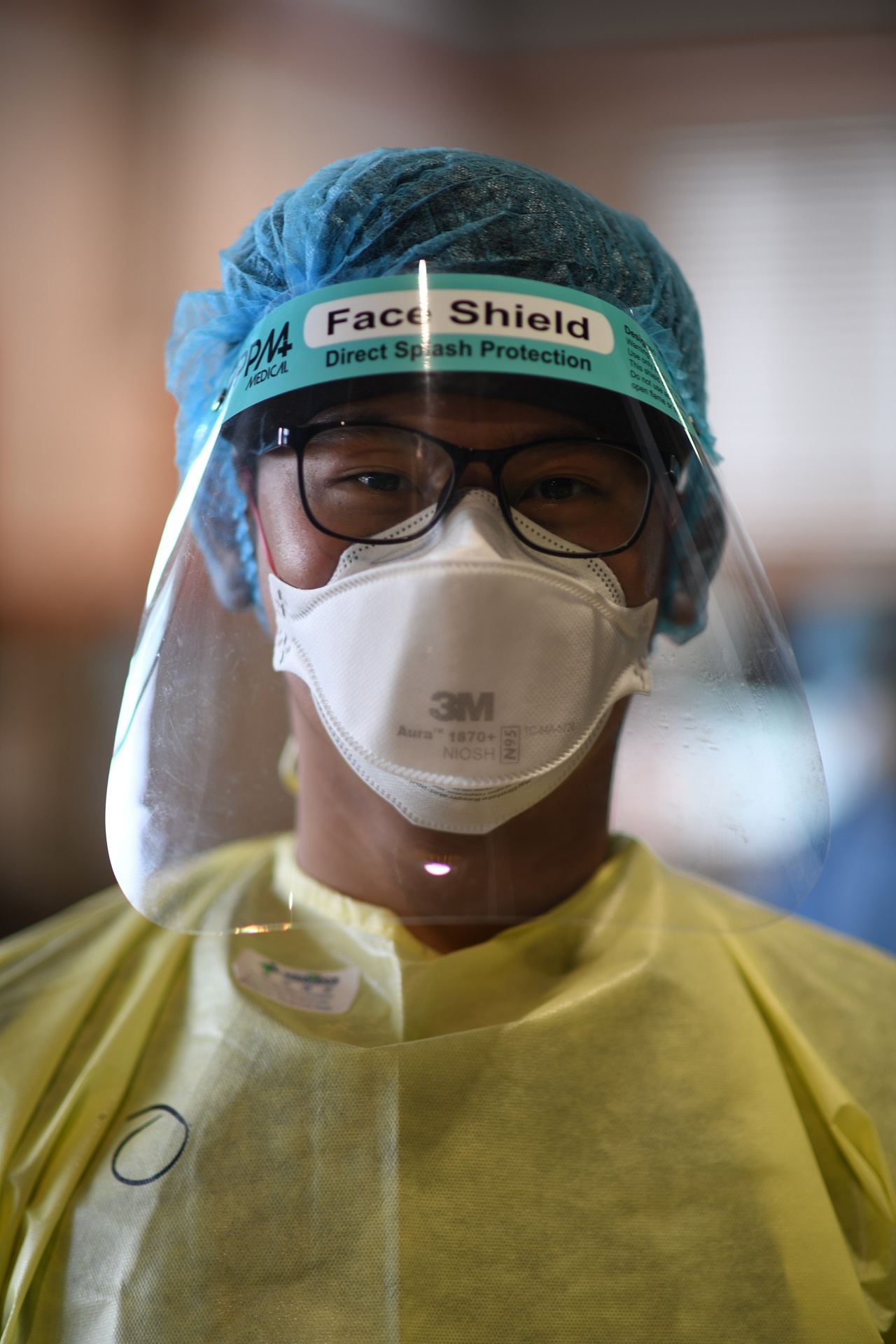
"Being involved in COVID-19 operations means that I'm not only contributing to the SAF, but to the Singapore community as well."
-3SG Chan
